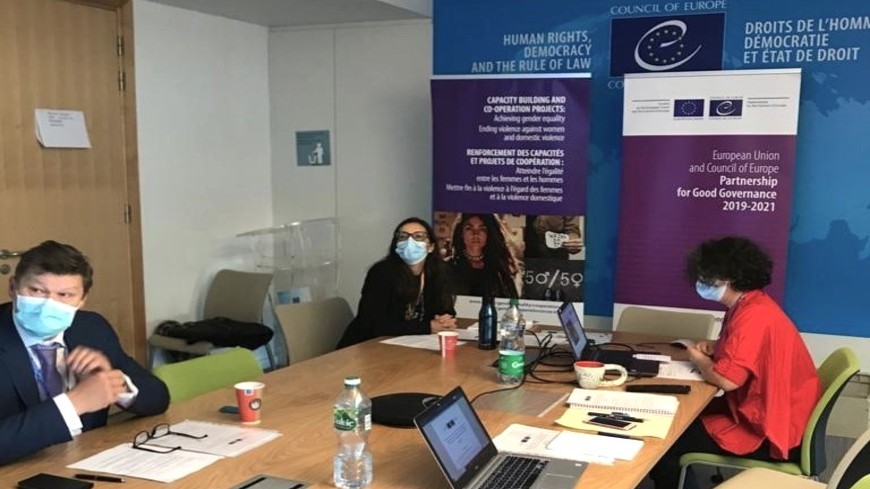On 30 September 2020, the Council of Europe organised an informative meeting on the impact of Covid-19 on Women’s Access to Justice in the Eastern Partnership countries. The meeting is an activity of the EU and CoE joint programme PGGII regional project “Women access to justice: delivering on the Istanbul Convention and other European gender equality standards”.
The informative meeting gathered 35 participants from different Eastern Partnership countries, including the project’s national partners, the legal training institutes for judges and prosecutors, as well as representatives of the Ministries of Foreign Affairs, civil society organisations, representatives of EU Commission, EU Delegations in the region and the Council of Europe. The participants reflected on the impact of the COVID-19 on gender equality that may be of relevance for the project outcomes as well as what are the opportunities and worrying regress on women’s access to justice due to the Covid-19 crisis.
The participants portrayed a situation of heavy impact on women’s rights, from a shadow pandemic of increased cases of violence against women and domestic violence, to the very heavy burden imposed on women: work, domestic chores and parenting/care, from restricted access to sexual and reproductive rights to limited access to services and justice. Nonetheless all interlocutors were positive that this pandemic is putting a strong light on the disproportionate effect on women’s rights and that measures that are starting to be put in place will more often than normal incorporate a gender equality perspective. All national partners highlighted how the action’s Mentoring Programme for legal Professionals on Women’s Access to Justice continued throughout the first half of 2020 and how it played an eye-opening role in the daily legal practice of the involved judges and prosecutors.





